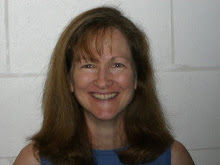Inner Transition
During November, I want to spend time examining Transitions. From a personal point of view, I prefer gentle transition. In a measure of time, I don't mind if a transition is fast-gentle not implying slow or methodical. It is the crisis transition that I desire to avoid.
For me transition has simultaneous components. There are components which happen outside of my physical sphere of being and components which are intricately woven to my inner being. The inner being is the aspect that strikes me as a personal point of departure.
Over the past twenty years, the indigenous wisdom I've witnessed addresses the wounds of humans. To heal from a wound, a human being must expect, desire, and be willing to receive from Source. No human, of any origin, belief or ethnicity is exempt from the ancestral wound.
In my work as a spiritual coach, I encounter countless cases of embedded wounds. Healing of these wounds requires an inquiry be made on multiple fronts. The spiritual being recognized as one front. The quote below is profound in that many westerners haven't considered the implications of the wound concept as applies to all ethnicity.
"We white Americans of European ancestry had our indigenous cultures stolen from us, had our lands and lifestyles, our lives destroyed, just as we have gone on to steal and destroy around the globe. It happened long ago, of course, so we barely remember it…the land remembers it…it’s all there, still reverberating through our bodies, like gongs still sounding centuries after they were struck with the mallet…and that pain shapes us, and hurts us still, and that, of course, is the deep reason we do what we do now to the planet. If we don’t seek to understand that, how can we ever expect to change our behavior?"
Tim Bennett, writer and director of What


0 Comments:
Post a Comment
Subscribe to Post Comments [Atom]
<< Home